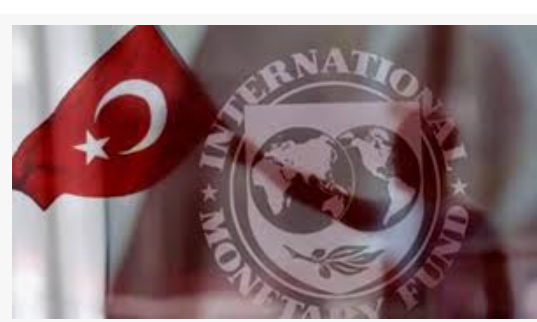IMF Executive Board concluded 2024 Article IV Consultation with Türkiye on 27 September, the findings of which were released on Friday. Contrary to past practice, Turkish authorities permitted the release of the report, which is at best a mixed bag. On one hand, IMF commands Ankara for rational policies which are likely to reduce inflation in 2025 at the expense of slower growth. On the other hand, it urged authorities to press ahead with coordinated fiscal, monetary, and incomes policies to anchor inflationary expectations and entrench macroeconomic stability.
This is the executive summary of the report:
A decisive shift in economic policies over the past year has tightened Türkiye’s overall policy stance. The Central Bank of the Republic of Türkiye (CBRT) has brought the ex-ante real policy rate into positive territory while reducing regulatory complexity. Tax and expenditure measures underpin efforts to restore fiscal prudence and the commitment to stronger incomes policies has strengthened credibility.
The policy turnaround has reduced economic imbalances and revived confidence. Headline inflation has fallen as tighter financial conditions are weighing on domestic demand. Market sentiment has sharply improved, with domestic and foreign investors shifting into lira-denominated assets while lower commodity prices, buoyant exports, and reduced gold imports have strengthened the current account, supporting a large improvement in both the gross and net reserves position. The financial and corporate sectors appear to have weathered the policy tightening and financial liberalization so far. Credit default swaps (CDS) spreads are now at about half their mid-2023 levels.
Under the authorities’ gradual policy adjustment, inflation is expected to further decline. Contractionary ex ante real policy rates, moderating wage growth, and more contractionary fiscal policy in 2025 are expected to reduce inflation to 43 percent this year and 24 percent in end-2025. After a strong first quarter, growth has weakened and is expected to fall to 3 percent in 2024 and 2.7 percent in 2025, recovering toward 4 percent in the medium term. Disinflation and improved confidence will support a narrowing of the current account deficit to about 2 percent of GDP and reserves to around 100 percent of the IMF’s adequacy metric.
Risks significant, tilted to the downside
Risks around the baseline are significant and tilted to the downside. They include stronger-than-expected wage and price inertia, a reversal of capital flows, higher global energy prices, and escalating geopolitical tensions. Significant financial and external vulnerabilities remain. The authorities’ gradual approach to fighting inflation prolongs the period during which risks might occur.
Executive Board Assessment
The Executive Directors agreed with the thrust of the staff appraisal. They commended the authorities for the decisive policy tightening since mid-2023, which has helped to significantly reduce macroeconomic imbalances and risks. However, with inflationary pressures still high, and significant downside risks, they urged the authorities to press ahead with coordinated fiscal, monetary, and incomes policies to anchor inflationary expectations and entrench macroeconomic stability.
While noting sustainable public debt levels, Directors recommended a larger and more frontloaded fiscal consolidation to support disinflation efforts and further strengthen buffers. They supported strengthening tax administration, rationalizing tax expenditures, broadening the tax base, energy subsidy reform, limiting capital spending to essential projects, and enhancing risk monitoring while protecting earthquake related spending. Directors also urged further efforts to address fiscal risks arising from contingent liabilities in state owned enterprises, public private partnerships, and pension costs.
While noting the challenges, Directors considered that phasing out backward looking indexation and shifting toward setting wages in line with inflation expectations could significantly help reduce inflation.
Directors called for continued tight, data dependent monetary policy until inflation converges to target levels. They agreed that the central bank should stand ready to tighten further if needed to ensure that the path of disinflation stays on track. Directors highlighted that further strengthening the monetary transmission mechanism and central bank independence and communication would enhance policy credibility.
Directors encouraged foreign exchange intervention to focus on smoothing potentially destabilizing exchange rate movements that could dislodge inflation expectations, and to be scaled back as inflation recedes. They highlighted the need to effectively manage volatile capital flows and agreed that capital flow measures should be discontinued gradually as FX liquidity risk and inflation recede.
Directors underscored the importance of ongoing vigilance and further reforms to maintain financial stability. They supported continued implementation of the 2023 FSAP recommendations and efforts to align the supervisory and regulatory framework with Basel III standards. Directors commended the authorities for recent improvements to the AML/CFT framework and exit from the FATF grey list, while noting that further progress was needed, including to mitigate virtual assets risks.
Directors called for advancing structural reforms to achieve more inclusive, greener, and higher medium-term growth. Further energy and labor market reforms, including to boost female participation, remain important priorities.
